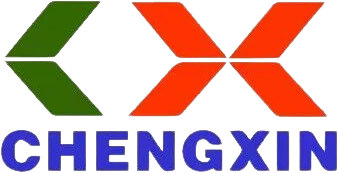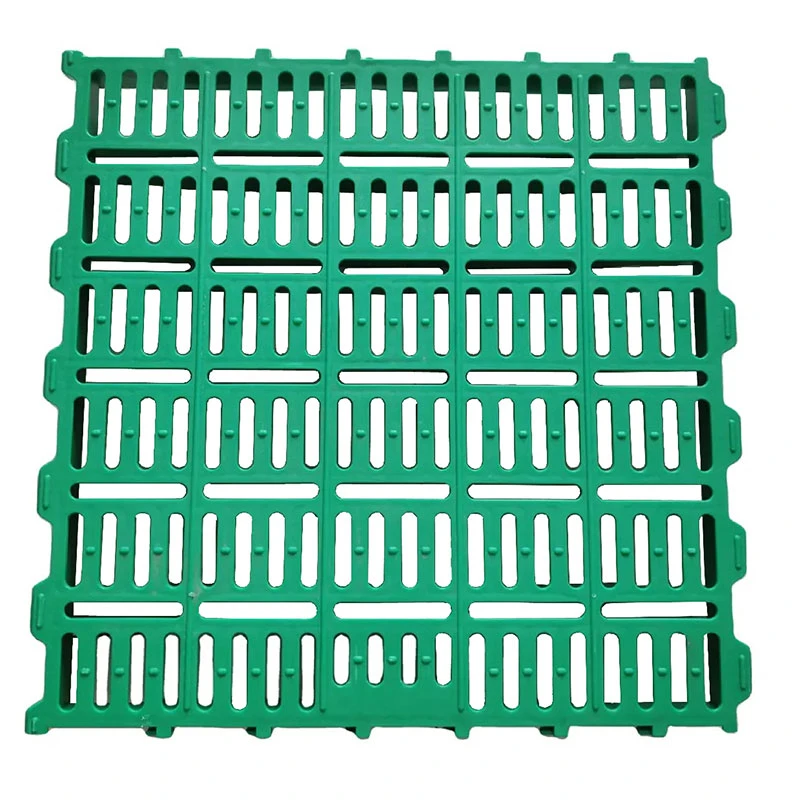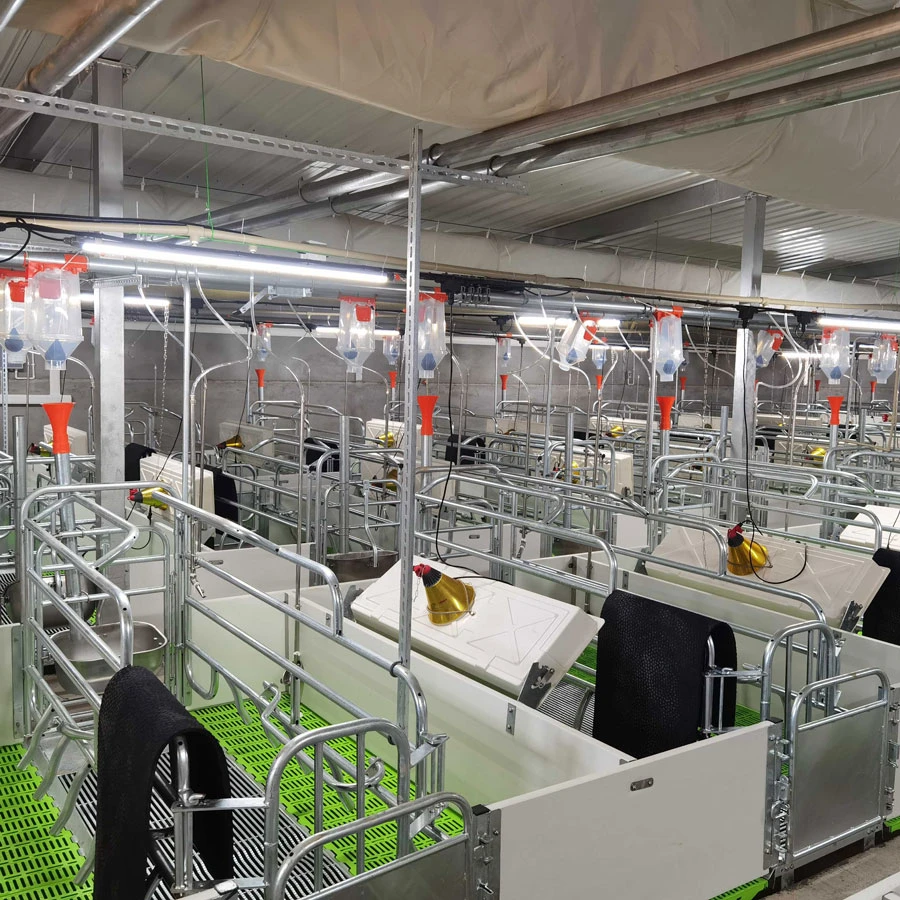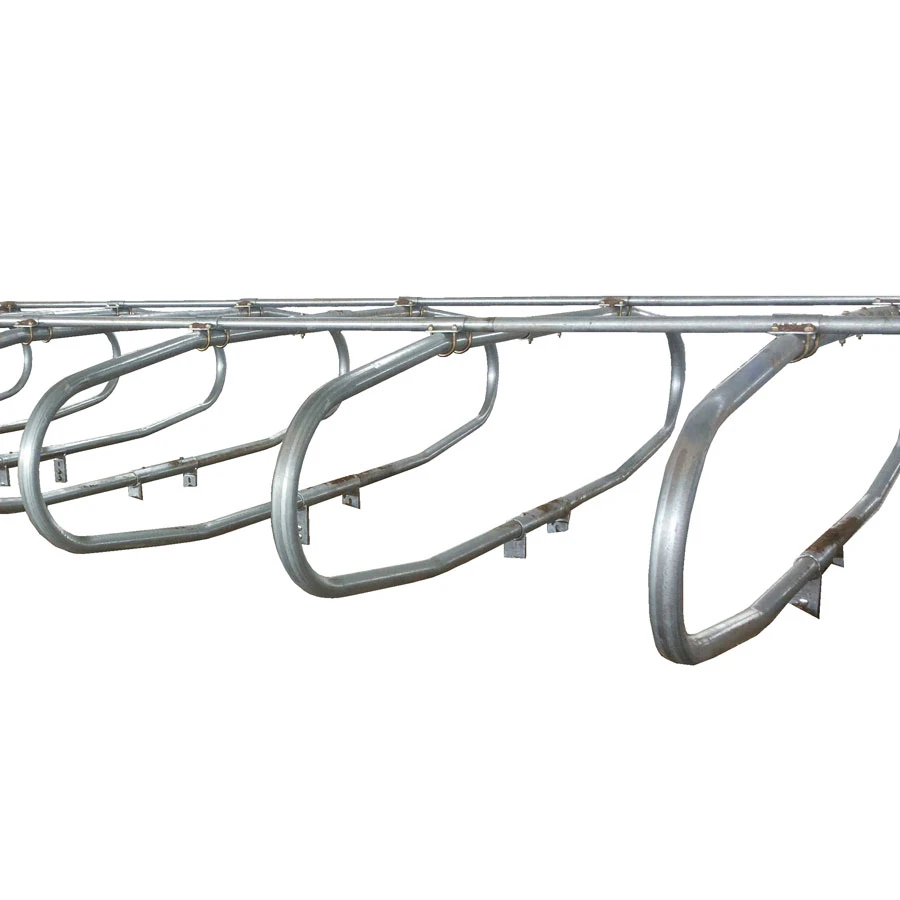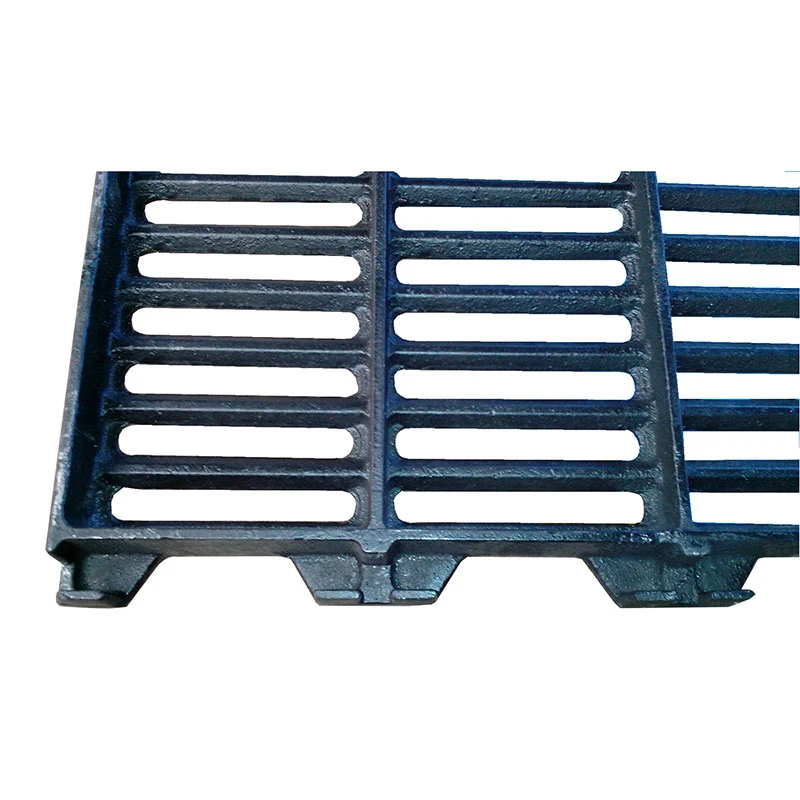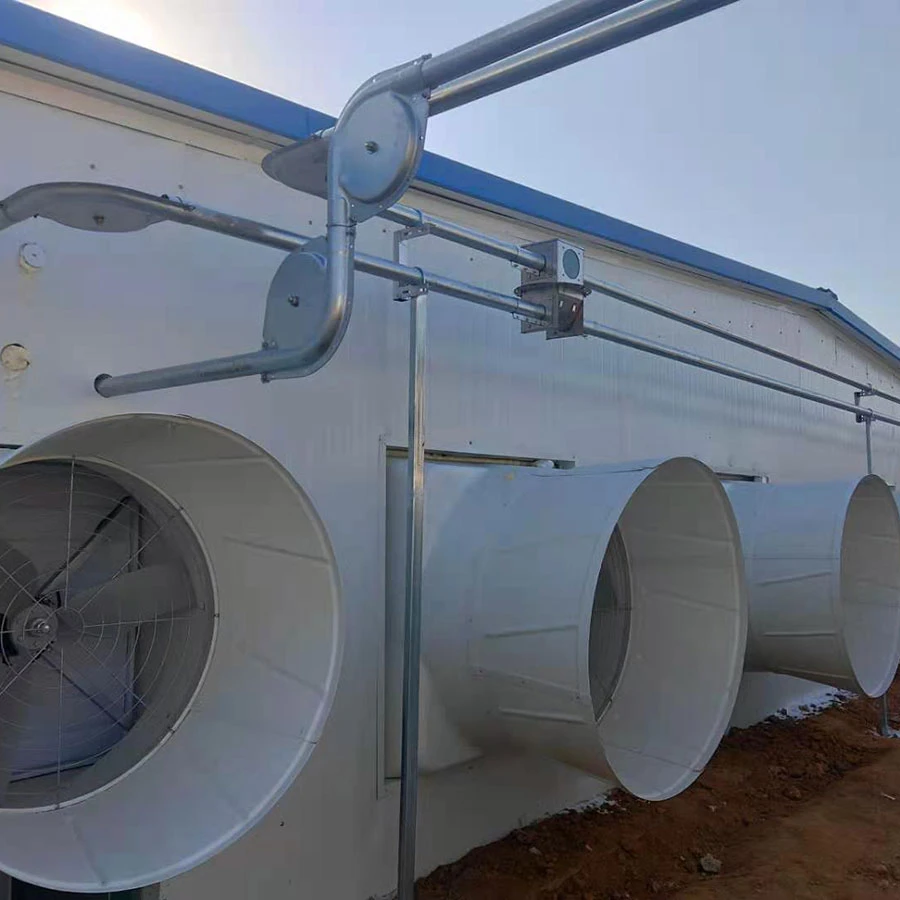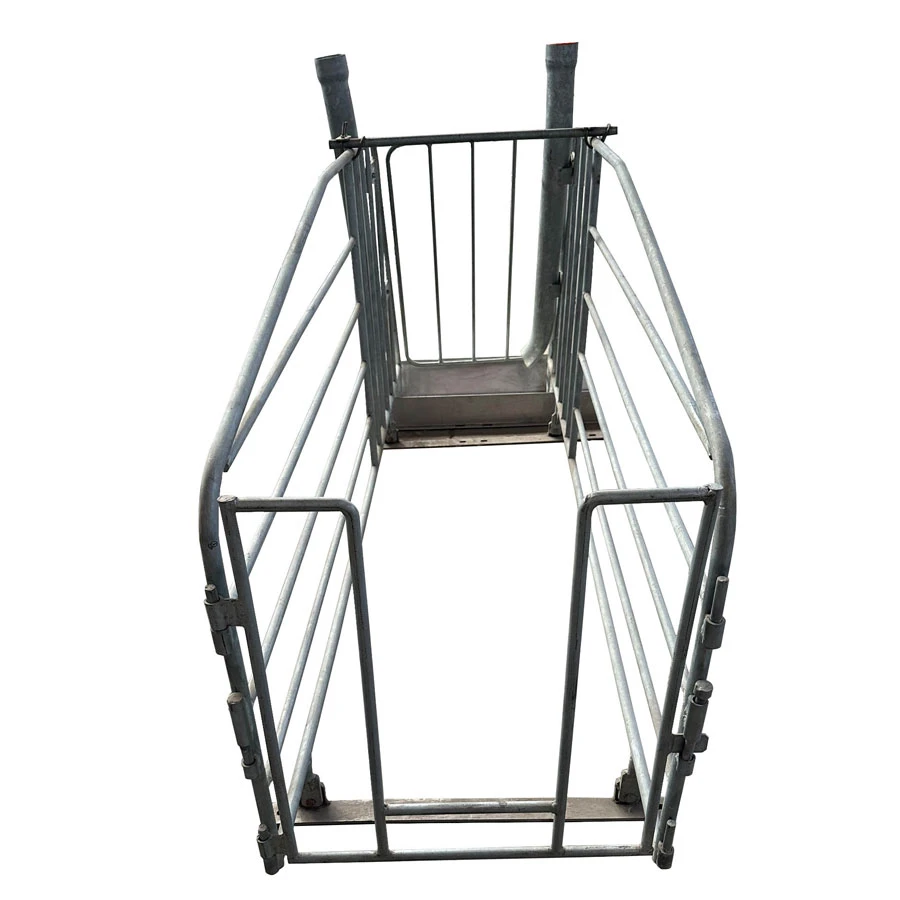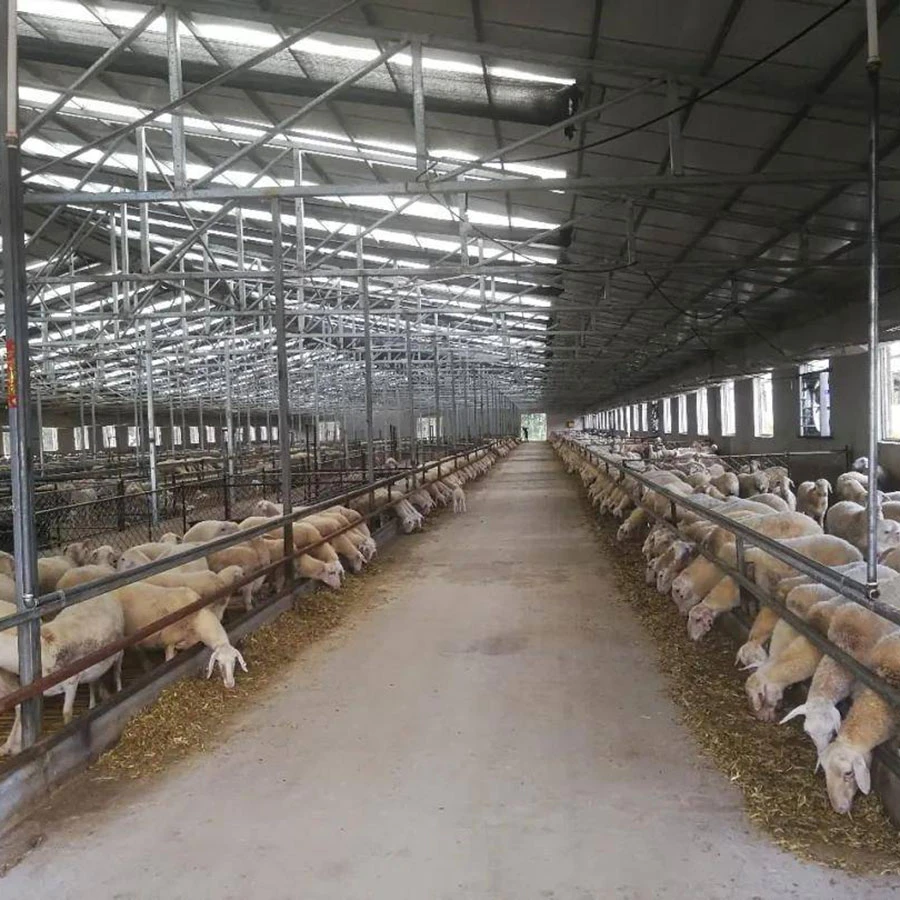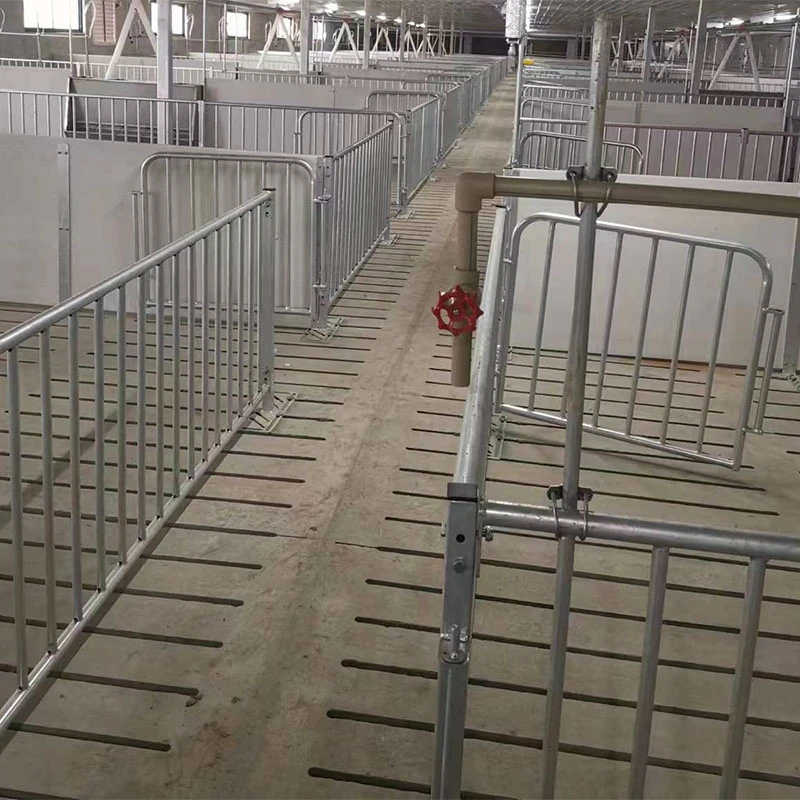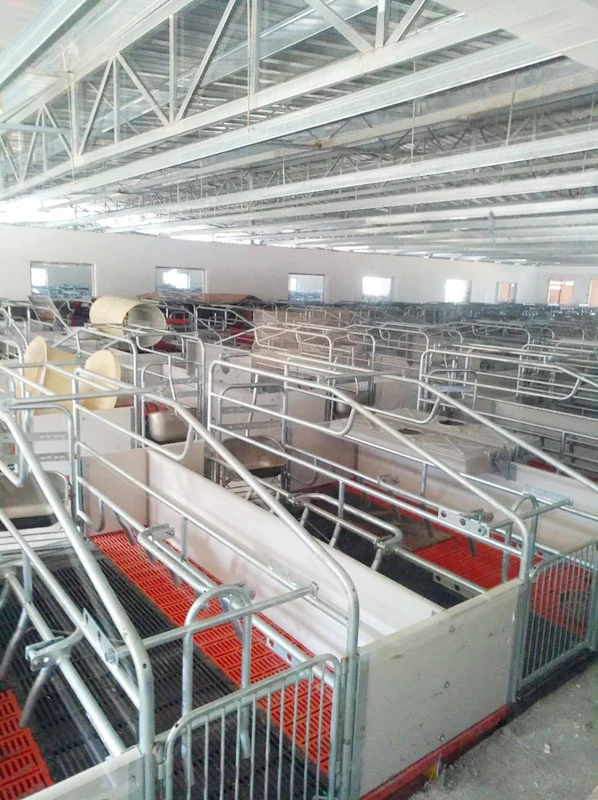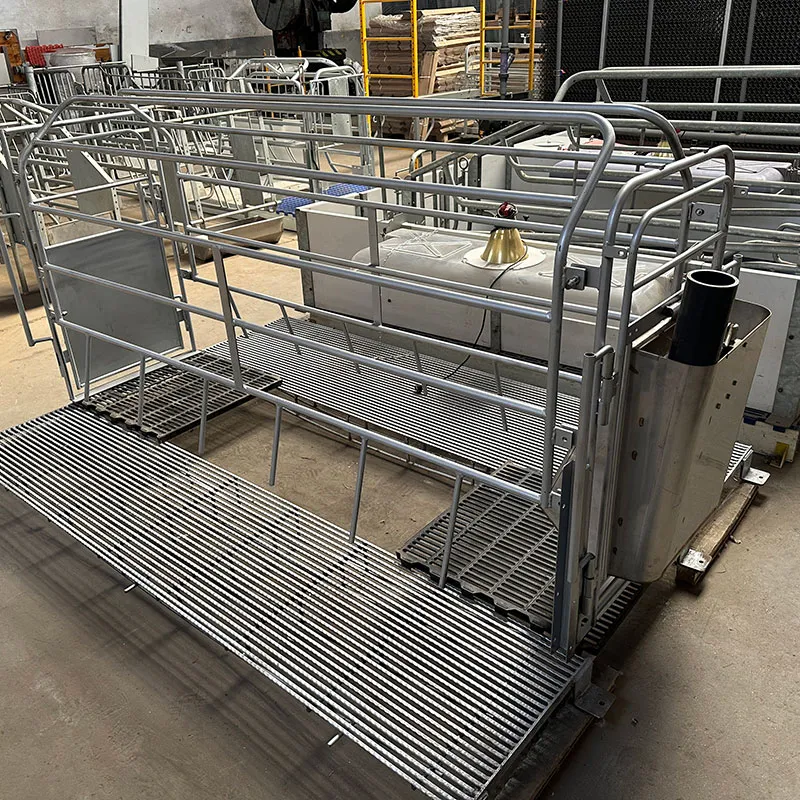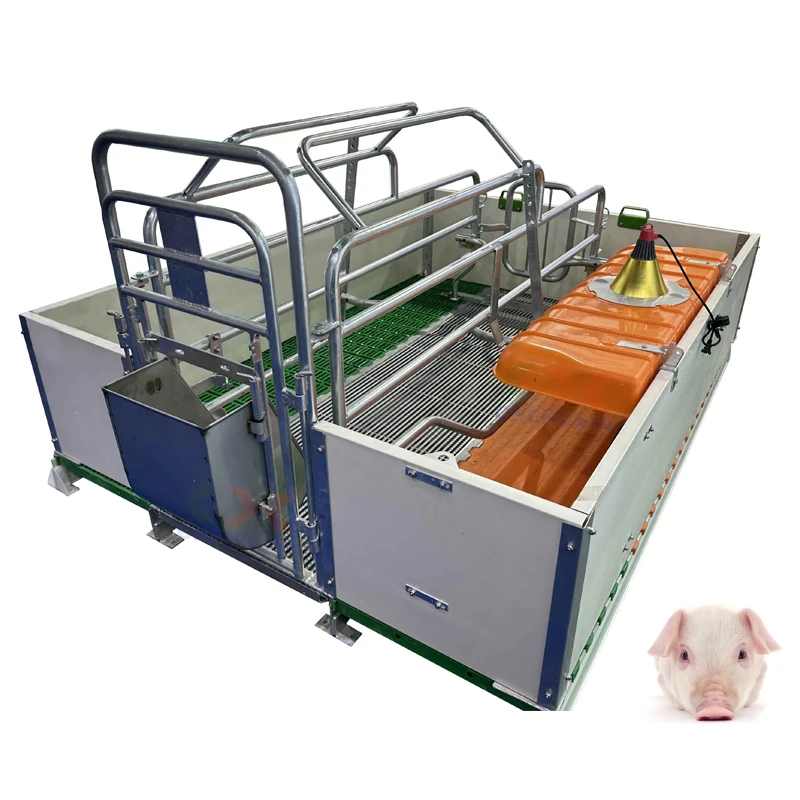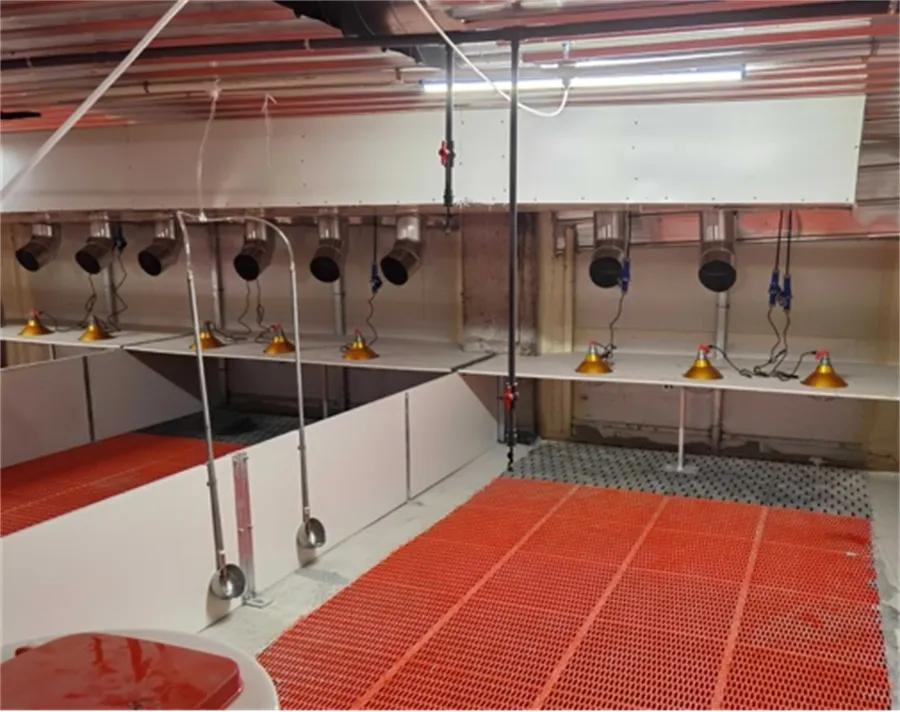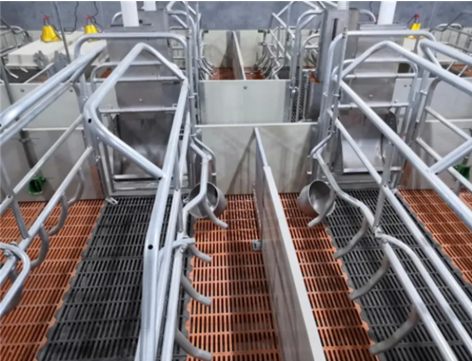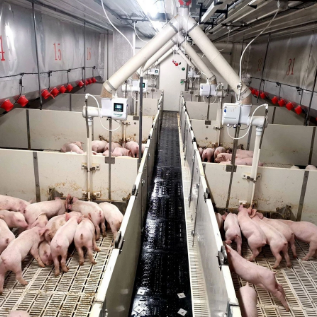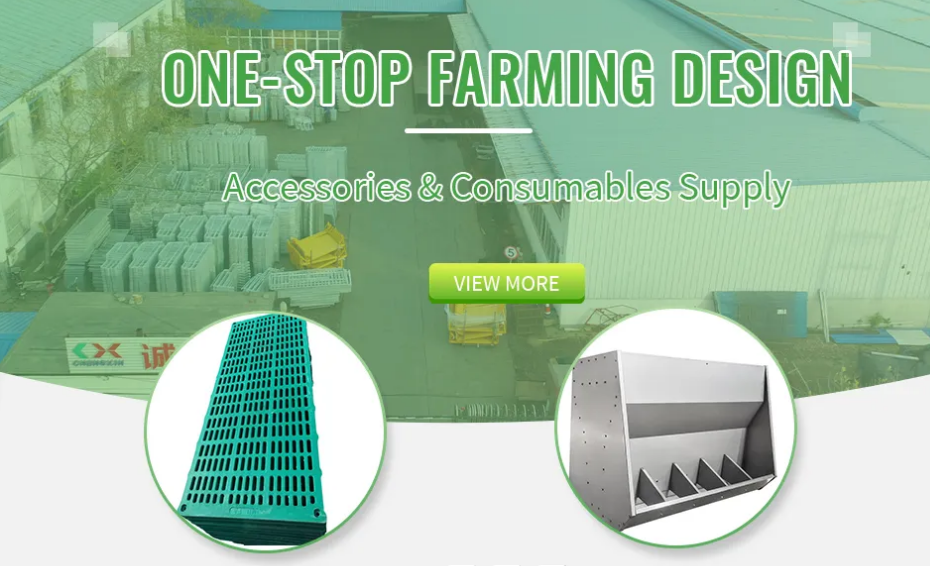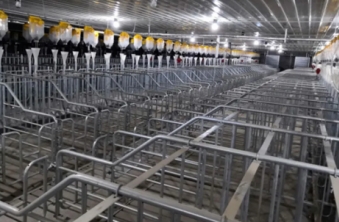Advancing Livestock Management with High-Performance Flooring Solutions
In the rapidly evolving landscape of modern livestock management, the choice of flooring significantly impacts animal welfare, operational efficiency, and long-term profitability. Among the array of available materials, cast iron flooring stands out as a superior solution, particularly for demanding environments such as pig farming. Its inherent durability, thermal properties, and hygienic advantages make it an indispensable component for high-standard agricultural facilities. This comprehensive guide delves into the technical aspects, application benefits, and strategic considerations for implementing this robust flooring solution in contemporary pig farming operations.
Industry Trends in Livestock Flooring: A Focus on Durability and Hygiene
The modern livestock industry is increasingly driven by twin imperatives: maximizing productivity and ensuring optimal animal welfare. This translates into a strong demand for infrastructure that supports both. Traditional flooring materials often fall short in durability, hygiene, or thermal regulation. Current trends highlight a significant shift towards materials that offer:
- Enhanced Longevity: Reducing the need for frequent replacements and associated operational downtime.
- Superior Biosecurity: Non-porous surfaces that are easy to clean and disinfect, minimizing pathogen transmission.
- Thermal Comfort: Materials that assist in regulating ambient temperatures, crucial for the health and growth of young animals.
- Slip Resistance: Preventing injuries to animals and farm personnel.
- Waste Management Efficiency: Designs that facilitate quick and effective manure removal.
Advanced flooring solutions, such as those made from robust cast iron, are perfectly aligned with these trends, offering a long-term, high-performance solution that addresses critical operational and welfare concerns in pig farming.
The Manufacturing Process of Cast Iron Flooring for Piggery
The production of high-quality cast iron flooring involves a sophisticated manufacturing process that ensures its durability, strength, and precise dimensions. This process typically adheres to international quality management standards like ISO 9001, guaranteeing consistency and reliability. The primary method utilized is sand casting, renowned for its ability to produce complex shapes and robust structures.
Detailed Process Flow:
- 1. Material Selection and Preparation: High-grade pig iron, along with specific percentages of scrap steel, ferroalloys (e.g., ferrosilicon, ferromanganese), and carbon-rich materials, are meticulously selected. This precise composition ensures the desired mechanical properties and resistance to corrosion inherent in a piggery environment.
- 2. Melting: The selected raw materials are melted in an induction furnace at extremely high temperatures (typically 1450-1550°C). This process allows for precise control over the alloy's chemical composition and homogeneity.
- 3. Molding (Sand Casting): A pattern of the desired flooring section is used to create a mold cavity in compacted sand. This mold is designed with appropriate gating and risering systems to ensure proper metal flow and minimize defects. For piggery flooring, the design accounts for specific slot widths, surface textures, and structural integrity.
- 4. Pouring: Once the molten iron reaches the optimal temperature and composition, it is carefully poured into the sand molds. Strict control over pouring temperature and speed prevents issues like cold shuts or incomplete filling.
- 5. Cooling: After pouring, the molten metal is allowed to cool and solidify within the mold. The cooling rate is critical for establishing the microstructure and final mechanical properties of the cast iron.
- 6. Shakeout: Once sufficiently cooled, the sand mold is broken apart to reveal the rough casting. The sand is then recycled.
- 7. Finishing: The castings undergo several finishing operations. This includes fettling (removing gates and risers), grinding (smoothing rough edges and surfaces), and shot blasting (for surface cleanliness and stress relief). CNC machining may be employed for critical dimensioning or creating specific features, ensuring precise fit and finish for modular flooring systems.
- 8. Quality Control and Testing: Each batch undergoes rigorous testing. This includes visual inspections for surface defects, dimensional checks, and metallurgical analysis (spectrometry for chemical composition, hardness testing, tensile strength tests) to ensure compliance with design specifications and industry standards like ASTM A48 (for gray iron castings).
- 9. Surface Treatment (Optional): Depending on specific requirements, some flooring may receive additional surface treatments for enhanced corrosion resistance or non-slip properties.
This meticulous process ensures that the resulting flooring exhibits superior service life, exceptional load-bearing capacity, and inherent resistance to corrosive agents commonly found in agricultural settings, thereby reducing maintenance cycles and operational costs.
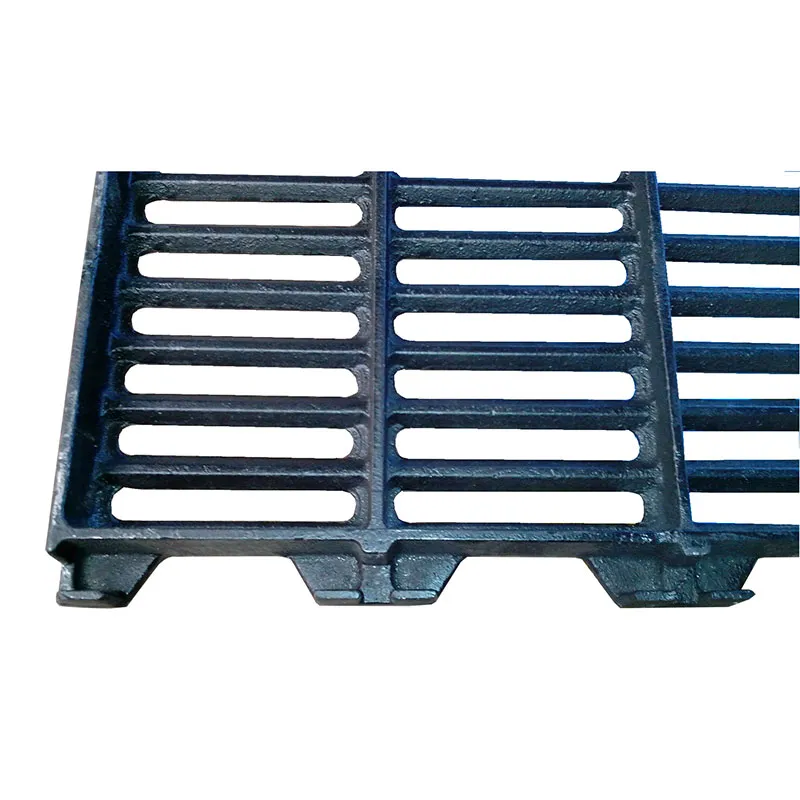
Technical Specifications and Parameters
The technical performance of cast iron flooring is critical for its application in demanding environments like pig farming. Key parameters dictate its suitability, longevity, and overall contribution to animal welfare and farm efficiency. Understanding these specifications is essential for B2B decision-makers and engineers.
Key Material Properties:
- Material Composition: Typically high-grade grey cast iron (e.g., HT200-300 equivalent to ASTM Class 30-40), characterized by graphite flakes that impart excellent vibration damping and wear resistance.
- Tensile Strength: Ranging from 200 MPa to 300 MPa, ensuring resistance to cracking under heavy loads.
- Compressive Strength: Significantly higher than tensile strength, often exceeding 700 MPa, crucial for supporting animal weight and dynamic loads.
- Hardness: Brinell Hardness (HB) typically 180-240, providing superior resistance to abrasion and wear from animal hooves and cleaning equipment.
- Corrosion Resistance: Inherently resistant to organic acids and ammonia present in manure, a critical factor for longevity in piggery environments.
- Thermal Conductivity: Approximately 50-60 W/(m·K), allowing for effective heat transfer, which is beneficial for managing animal temperatures (e.g., cooling sows, warming piglets via heated pads).
Product Specification Table: Cast Iron Floor for Pig Farming
These specifications underscore the engineered precision behind modern cast iron products, making them an optimal choice for critical agricultural infrastructure where performance and reliability are paramount.
Application Scenarios in Piggery Environments
The versatility and robustness of cast iron flooring make it suitable for various critical areas within a pig farming operation, each with specific requirements for animal welfare and operational efficiency.
- Farrowing Crates: This is arguably the most critical application. Cast iron sections, particularly those designed for piglet zones, provide vital warmth when integrated with underfloor heating, significantly reducing piglet chilling and mortality rates. The precise slot widths ensure efficient waste removal while offering a safe, stable surface for piglets, minimizing crush injuries from the sow. The smooth, easy-to-clean surface enhances hygiene, crucial for newborn health.
- Gestation Stalls: For pregnant sows, comfort and hygiene are paramount. The immense strength of cast iron accommodates the weight of mature sows throughout their gestation period without degradation or deformation. Its non-porous nature prevents bacterial buildup, promoting a healthier environment and reducing stress-related issues.
- Weaning and Finishing Pens: As pigs grow, their weight and activity increase. Cast iron flooring in these pens provides unmatched durability against continuous animal movement and high waste production. Its wear resistance ensures a long service life, even under the most rigorous conditions. The effective drainage design aids in maintaining dry, clean pens, which is vital for preventing respiratory and skin diseases in growing pigs.
- Boar Pens: Given the size and strength of breeding boars, the flooring must withstand considerable impact and weight. Cast iron offers the necessary structural integrity and longevity, providing a stable footing that contributes to animal safety and ease of management.
Across these applications, the material's robust nature, combined with thoughtful design for specific animal stages, contributes significantly to improved animal welfare metrics, reduced veterinary costs, and enhanced overall farm productivity.
Technical Advantages of Cast Iron Flooring
The adoption of cast iron for flooring in advanced pig farming facilities is driven by a suite of compelling technical advantages that translate directly into operational benefits and return on investment.
- Unparalleled Durability and Longevity: Cast iron boasts exceptional strength and resistance to wear, far surpassing plastic or concrete alternatives. This translates to a service life of 20-30 years, drastically reducing replacement costs and maintenance downtime over the facility's lifespan.
- Superior Hygiene and Ease of Cleaning: The non-porous, smooth surface of cast iron prevents the absorption of moisture and organic matter, inhibiting bacterial growth. Its resistance to harsh cleaning agents and high-pressure washing ensures thorough sanitation, critical for biosecurity and disease prevention.
- Optimal Thermal Regulation: Cast iron has high thermal conductivity, making it ideal for integration with underfloor heating or cooling systems. This allows for precise temperature control, providing warmth to vulnerable piglets and cooling comfort to heat-stressed sows, optimizing their health and productivity.
- High Load-Bearing Capacity: Engineered to withstand significant static and dynamic loads, it easily supports the weight of mature sows and multiple piglets without sagging or breaking, maintaining structural integrity over decades.
- Exceptional Corrosion Resistance: The inherent properties of specific cast iron alloys provide robust resistance to the corrosive effects of manure, urine, and cleaning chemicals, ensuring the structural integrity of the flooring in challenging agricultural environments.
- Reduced Animal Injury Rates: The thoughtfully designed surface texture provides optimal grip, reducing slips and falls. Precisely engineered slot widths facilitate efficient waste passage while preventing hoof injuries or entrapment, contributing directly to improved animal welfare and reduced veterinary expenses.
- Environmental Stability: Cast iron is a stable material that does not degrade or leach harmful substances, making it a sustainable choice for long-term agricultural investments.
These combined attributes position robust cast iron flooring as a premium, cost-effective solution for modern pig farming, offering a tangible competitive advantage through enhanced animal performance and operational longevity.
Vendor Comparison: Selecting the Right Partner for Cast Iron Flooring
Choosing the right supplier for your cast iron flooring is as crucial as selecting the material itself. A reputable vendor offers not just a product, but a partnership grounded in quality, expertise, and support. When evaluating potential suppliers, consider the following:
Key Comparison Criteria:
Partnering with a vendor possessing deep expertise in casting and livestock solutions ensures not only a superior product but also valuable insights and support throughout the project lifecycle.
Customized Solutions for Optimal Piggery Design
Every pig farm has unique architectural layouts, animal flow requirements, and operational specificities. Recognizing this, leading manufacturers offer highly customizable cast iron flooring solutions, moving beyond off-the-shelf products to engineered systems tailored to precise needs.
Key Areas of Customization:
- Dimensions and Shape: Flooring sections can be cast in bespoke sizes and shapes to fit irregular pen geometries, corners, or specific equipment integration points, minimizing waste and ensuring seamless coverage.
- Slot Configuration and Width: Custom slot patterns and widths can be designed to optimize manure passage for different age groups (e.g., narrower slots for piglets, wider for sows) while maintaining maximum comfort and safety.
- Surface Texture: While typically smooth with a slight texture, custom non-slip patterns can be incorporated for areas requiring enhanced traction, such as ramps or high-traffic zones.
- Alloy Composition: For farms in extremely corrosive environments or those requiring specialized properties (e.g., enhanced thermal transfer), the cast iron alloy can be modified with specific elements to boost performance.
- Integration with Heating/Cooling: Custom designs can facilitate the seamless integration of underfloor heating pipes or cooling elements, turning the flooring into an active thermal management system.
The customization process typically involves close collaboration between the client and the manufacturer's engineering team, utilizing CAD design and simulation to ensure the final product meets all functional and structural requirements before manufacturing begins. This collaborative approach guarantees an optimized solution that maximizes efficiency and animal welfare tailored to the specific farm operation.
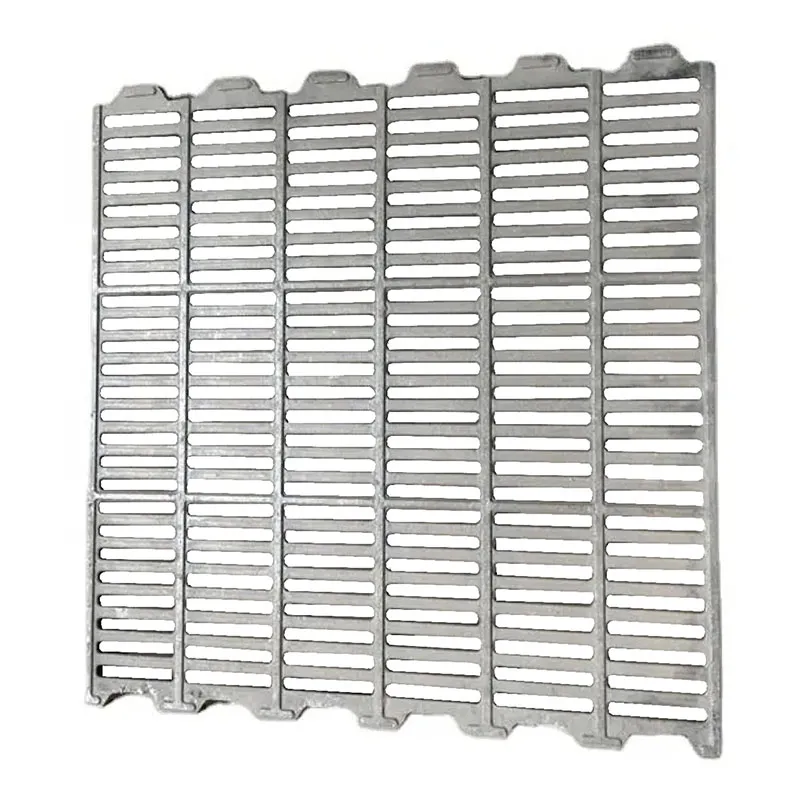
Application Case Studies: Real-World Impact
The proven benefits of high-quality cast iron flooring are best illustrated through real-world applications where measurable improvements have been achieved. These case studies highlight the impact of this robust solution on productivity, animal welfare, and operational costs.
Case Study 1: Global Pig Farm Solutions Inc. - Farrowing Unit Upgrade
- Challenge: Global Pig Farm Solutions Inc., a large-scale producer in Iowa, faced persistent issues with piglet mortality in their farrowing units due to chilling and suboptimal hygiene conditions with existing plastic flooring.
- Solution: The company opted to replace all farrowing crate flooring with custom-designed cast iron flooring sections, integrated with hydronic heating systems for piglet zones. The new flooring featured optimized slot widths to improve waste management.
- Results:
- 15% Reduction in Piglet Mortality: Achieved within the first year, primarily attributed to improved thermal comfort and enhanced hygiene.
- 20% Improvement in Cleaning Efficiency: The non-porous surface and effective slot design drastically reduced cleaning time and water consumption.
- Significant Reduction in Veterinary Costs: Fewer instances of bacterial infections and lameness in piglets.
- Client Feedback: "The investment in cast iron flooring has been transformative. Our piglets are healthier, our staff spends less time on sanitation, and the overall productivity of our farrowing units has seen a noticeable uplift. It’s a testament to the longevity and performance of cast iron." - Chief Operations Officer, Global Pig Farm Solutions Inc.
Case Study 2: AgriTech Europe - Gestation and Finishing Pen Overhaul
- Challenge: AgriTech Europe, a prominent pork producer in Germany, sought to upgrade its older facilities, which suffered from rapidly degrading concrete and plastic slatted floors in gestation and finishing pens. This led to high maintenance costs and animal welfare concerns (e.g., foot lesions).
- Solution: AgriTech implemented a phased replacement of all existing flooring with high-strength cast iron flooring across their gestation and finishing pens. The design focused on maximum load-bearing capacity and a specialized surface texture for enhanced grip.
- Results:
- Reduced Floor Maintenance by 90%: Elimination of concrete chipping and plastic slat breakage issues, leading to substantial labor and material savings.
- 5% Improvement in Daily Weight Gain (Finishing Pigs): Attributed to improved comfort, reduced stress, and lower incidence of lameness.
- Significant Decrease in Animal Injury Incidents: The robust and stable footing provided by cast iron dramatically reduced slips, falls, and associated injuries.
- Client Feedback: "The durability of cast iron flooring is unmatched. We anticipate decades of reliable performance, which is a game-changer for our long-term operational planning. Our animals are visibly more comfortable and healthier, directly contributing to our bottom line." - Head of Facilities Management, AgriTech Europe.
These cases underscore the tangible economic and welfare benefits derived from investing in high-quality cast iron flooring, positioning it as a strategic asset for any modern pig farming enterprise.
Ensuring Trustworthiness: FAQ, Lead Times, Warranty, & Support
Frequently Asked Questions (FAQ)
Q: Is cast iron flooring suitable for all stages of pig production?
A: Yes, with appropriate design modifications, cast iron flooring can be optimized for farrowing, gestation, weaning, and finishing pens. Specific slot widths and surface treatments cater to the needs of different age groups, from delicate piglets to heavy sows.
Q: How does cast iron flooring contribute to animal welfare?
A: It provides a stable, hygienic surface that reduces slips and injuries. Its thermal properties allow for better temperature regulation, which is vital for piglet survival and sow comfort. Efficient waste removal also contributes to a healthier, cleaner environment, reducing stress and disease risk.
Q: What is the typical service life of cast iron flooring?
A: With proper installation and maintenance, high-quality cast iron flooring is designed to last 20-30 years, significantly outperforming other flooring materials like plastic slats (5-10 years) or traditional concrete, thereby offering a superior long-term ROI.
Lead Time and Fulfillment
Standard orders for our high-quality cast iron flooring typically have a lead time of 4-6 weeks from order confirmation to shipment, depending on volume and current production schedules. Custom orders, requiring specialized tooling or alloy compositions, may extend to 8-12 weeks. We maintain robust logistics partnerships to ensure efficient and reliable global delivery, with detailed tracking provided for all shipments. Expedited options are available upon request and project feasibility assessment.
Warranty Commitments
We stand behind the quality and durability of our cast iron flooring products with a comprehensive 5-year limited warranty against manufacturing defects and premature failure under normal operating conditions. This warranty covers material integrity and structural performance, reflecting our confidence in the product's design and manufacturing excellence. Full warranty terms and conditions are provided with every quotation and order.
Customer Support
Our dedicated customer support team and technical experts are available to assist with all aspects of your project, from initial consultation and customized design to installation guidance and after-sales support. We offer multi-channel support including direct phone lines, email, and online ticketing systems to ensure prompt and effective resolution of any inquiries or challenges. Our goal is to forge long-term partnerships built on trust and mutual success.
Conclusion
In the competitive and demanding sector of modern pig farming, the foundational elements of infrastructure play a pivotal role in overall success. High-quality cast iron flooring offers a robust, long-term solution that not only withstands the rigors of intense agricultural environments but also actively contributes to enhanced animal welfare, improved biosecurity, and significant operational efficiencies. By integrating advanced manufacturing techniques with a deep understanding of livestock needs, cast iron solutions emerge as a strategic investment for farms aiming for sustainable productivity and superior animal health outcomes. The enduring strength, hygienic properties, and customizable nature of this flooring solidify its position as an indispensable component for the future of pig farming.
References
- ASTM International. "A48/A48M-03 Standard Specification for Gray Iron Castings." (Latest revision may apply).
- International Organization for Standardization. "ISO 9001:2015 - Quality management systems - Requirements."
- European Commission. "Animal Welfare in Pig Production." Directorate-General for Health and Food Safety.
- Journal of Animal Science. (Various articles on swine housing and flooring systems).
- National Pork Board. "Pork Production Handbook." (Various editions).
- American Society of Agricultural and Biological Engineers. "ASABE Standards." (Relevant standards for livestock housing).
Post time: aug . 30, 2025
